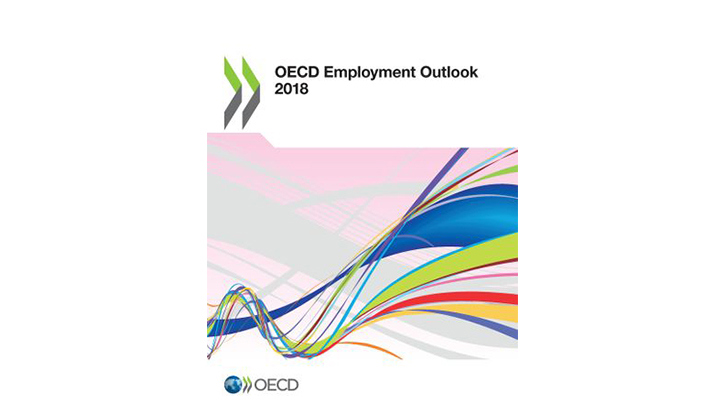Rising employment overshadowed by unprecedented wage stagnation

Economic growth is picking up and unemployment has reached record lows in some OECD countries but wages continue to stagnate. Unless countries can break this cycle, public belief in the recovery will be undermined and labour market inequality will widen, according to a new OECD report.
The OECD Employment Outlook 2018 says that the employment rate for people aged 15-74 in the OECD area reached 61.7% in the OECD area at the end of 2017. For the first time there are more people with a job today than before the crisis. The employment rate in the OECD is expected to reach 62.1% by the end of this year and 62.5% in the fourth quarter of 2019. Some of the strongest improvements occurred among disadvantaged groups, such as older workers, mothers with young children, youth and immigrants.
Unemployment rates are below, or close to, pre-crisis levels in most countries. Job vacancies have also reached record highs in Japan, the euro area, the United States and Australia. The OECD unemployment rate is predicted to continue falling, to reach 5.3% at the end of 2018 and 5.1% the following year. Yet the picture continues to be mixed in terms of jobs quality and security, while poverty has grown among the working age population, reaching 10.6% in 2015 compared to 9.6% a decade earlier.
Wage growth remains remarkably more sluggish than before the financial crisis. At the end of 2017, nominal wage growth in the OECD area was only half of what it was ten years earlier: in Q2 2007, when the average of unemployment rates of OECD countries was about the same as now, the average nominal wage growth was 5.8% vs 3.2% in Q4 2017.
More worryingly, wage stagnation affects low-paid workers much more than those at the top: real labour incomes of the top 1% of earners have increased much faster than those of median full-time workers in recent years, reinforcing a long-standing trend.
“This trend of wageless growth in the face of a rise in employment highlights the structural changes in our economies that the global crisis has deepened, and it underlines the urgent need for countries to help workers, especially the low-skilled,” said OECD Secretary-General Ángel Gurría, launching the report in Paris. “Well-targeted policy measures and closer collaboration with social partners are needed to help workers adapt to and benefit from a rapidly evolving world of work, in order to achieve inclusive growth.”
Read more on the website of the OECD
Read the Summary